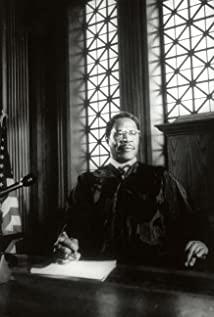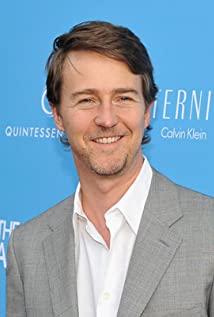Fight Club Fight Club USA/Germany 1999 Director David Fincher David Fincher. Fincha screenwriter Jim Uhls starring Edward Norton Edward. Norton Brad Pitt Helena Bonham Carter Helena. Baonan. When Kada first saw the Fight Club, he felt just cool, but after thinking about it carefully, the more he realized that the implicit meaning was not so simple. I would like to mention the connection between this film and the four people. Maybe the director didn’t intend to express his thoughts through their theories, but at least this is the enlightenment I got after watching this film, or it’s a kind of magic. Coincidence. As for whether this connection is a bit far-fetched, please enlighten me. Artur Schopenhauer Schopenhauer (1789-1860), German philosopher. He was the founder of voluntaristic philosophy, abandoned the speculative tradition of German classical philosophy, tried to find a new way out from the irrational aspect, and put forward the theory of the will of existence. Life is a kind of pain, and the pain a person feels is proportional to the depth of his will to survive. The stronger the will to survive, the more painful people are. There is only one way to get rid of suffering, which is to abandon desire and deny the will to survive. He believes that a person can temporarily relieve suffering through artistic creation and appreciation, but the most fundamental way to relieve is to enter the realm of Buddhism's emptiness and nothingness. Schopenhauer's philosophical thoughts were embodied in the role of JACK from the beginning. A typical example is the conversation with BOB when JACK participated in a mutual aid group: "I found freedom. Losing all hope was freedom." It is obviously with a strong pessimistic and desperate color, and he regards life as endless pain and disaster. I am in a trance every day, drifting away in the electrification, mechanization, and modern metropolis. I feel that I have lost my inner self. I am controlled and restrained by a huge social system. I repeat the same thing. The light of the photocopier flashes back and forth. The scene is also illusory and true: "Everything is a copy...of a copy...of a copy..." is surrounded by meaningless substances, the lens drifts between the wastes, and the furniture appears like a shadow: "Like so many others, I had become a slave to the IKEA nesting instinct. "There is always a estrangement in getting along with people, and conversations just stay on a superficial surface, never achieving the real purpose of communication. This can be seen in a dialogue between JACK and MARLA. :"I don't know. When people think you are dying, they really listen, instead----instead of just waiting for their turn to speak." I went to a terminally ill mutual aid group, not wanting to become addicted to it, and indulged in imaginary psychotherapy all day long to masturbate and escape the burden of reality. This is the same as Schopenhauer's "seeking the realm of Nirvana to transcend the pain of the world" Is it coincidentally? Schopenhauer believes that all life is pain in nature, because man is volitional in nature, and the volition has desires, always struggling forward, because struggle is its only essence. All pursuits Struggle is caused by defects and dissatisfaction with one's own condition; therefore, a day's unsatisfaction is painful. Moreover, no satisfaction is lasting, and each satisfaction is just the starting point for a new pursuit. Here, it is pointed out that desire is. Painful, because it cannot be truly satisfied. Therefore, "pain does not flow in from outside, but it is an inexhaustible source of pain in each of us. " This makes life a pain in the world. To cancel the pain, you can only give up your will, suppress your instinctive and primitive desires, and ignore the money, reputation, and status of society indifferently. JACK believes in this spirit. As for the views on Schopenhauer's philosophy, I am opposed to it. Regardless of whether the strong emotional color in his philosophy has too much subjective tendencies, it is difficult for people to identify with pure will as the essence of the world (especially for structuralists), not to mention what he cited Those examples are mostly just personal imaginations and lack persuasiveness. JACK followed the lifestyle he advocated, but in the end he was controlled by his libido and was difficult to communicate with the outside world. He simply isolated himself completely, treated the world with a noble attitude, and relied on the dying mutual aid group. The appearance seems to have been comforted, but in fact, the deep subconscious mind is ready to burst out, waiting for an opportunity to explode. The more desperately suppressed, the more likely it will burst out, and the film is ending in this extreme way. Is the director's arrangement out of criticism of Schopenhauer's philosophy? Or just condemning the materialistic society? I think it doesn’t matter how you understand it, because the meaning of the text lies entirely with the reader. Friedrich Nietzsche Also as a German philosopher, Nietzsche was deeply influenced by Schopenhauer's voluntarism philosophy. When he transferred to the University of Leipzig in 1865, he was awarded a degree for the first time. Hua's book "The World as Will and Appearance", and in the fifth chapter of his book "The Birth of Tragedy" published in 1872, he quoted Schopenhauer's discourse on music, and absorbed Schopenhauer's universe as a kind of will The apparent view. However, Nietzsche and Schopenhauer broke completely on issues such as attitudes to life. The former inevitably showed a strong pessimistic atmosphere, while Nietzsche advocates an optimistic spirit. He proposed: "Habits make people clever hands and clumsy minds, and all values must be reassessed." This critique of traditional ideas is based on the analysis of reason, consciousness and belief. Nietzsche believes that reason and consciousness are only one aspect of the complex spiritual activities of mankind. They are not lasting, eternal, and ultimate things, let alone the essence of life activities. However, he did not just put reason aside, here. , He refuted Schopenhauer's hypothesis "Anything that exists is a will." The argument puts forward: irrational people have no happiness or pain at all, and rationality is the basic condition of being a human being. For Christianity, Nietzsche mainly treats it as an old moral system. Christianity despises human instincts and stifles human will. This is a fundamental denial of life. The so-called forgiveness, humility, and self-sacrifice principles of life are nothing but The moral disguise of decadence and sickness is nothing more. Christianity's determination to expose the corruption and ugliness of the world has already caused the corruption and ugliness of the world. Nietzsche hated the enslavement of mankind by God's hypocritical dogma, and then proposed that "all true noble morals come from the self-affirmation of pride." Therefore, the will of life is fundamentally not a cowardly compromise or survival, but a manifestation of power and strength. The meaning of life depends on the strength of strength and the tempering of resistance to pain, and it depends on individual freedom. Self-awareness. At this point, Nietzsche has completely formed his own set of philosophical system on the will to power, thus overturning Schopenhauer's view of overcoming the will to consume the will, which is even more provocative. Regarding Nietzsche’s thinking, I don’t want to use some crazy, terrifying or reactionary idealism and other irresponsible words to evaluate him. It is also unjust to accuse him of being the root of Nazism. For such a man who pioneered modern philosophy The pioneering philosophers may not be able to generalize simply. In the film, I think Nietzsche’s thoughts are mainly embodied in TYLER. This role symbolizes the "building transcendence personality" proposed in his theory. Superman image. Superman is a person who can exert the will to power to the extreme. On the one hand, he is a genius artist and conqueror who is beyond humans and mediocrities, and on the other hand, he is a man who is inferior to humans. All behaviors are instincts of automatism. Superman is mysterious and beautifies. With the instinct of the animal, it almost equates the original desire with the genius creation of the artist, reaching a state of extreme freedom. Nietzsche pointed out that Superman must have the following five qualities: 1) Superman can surpass himself, fully express himself, and dominate the weak (the product of the last man or herd morality). 2) Superman is the creator and delimiter of truth and moral standards. 3) Superman is selfish, free, and self-sufficient. 4) Superman dared to face the greatest pain and greatest hope of mankind. 5) Superman grew up in an unfavorable environment and was tortured by pain, so his will was stronger. 6) Superman is a person who is full and rich, great and complete. In the film, TYLER is a personality split from JACK, a non-existent fictional character, but it is shown in concrete images (realized). In my previous words, it is Nietzsche's spirit, which had been suppressed for too long, split from Schopenhauer's spirit and developed to extremes step by step. His performance is a vivid superman image. If we carefully analyze what he did, we can probably get the following conclusions: 1) Resist materialism, give up the superior conditions of painstaking management, make bombs and destroy your IKEA home, and live in a dilapidated building. In the dangerous building, water leaks on rainy days, electrical appliances are short-circuited, and the facilities are extremely bad. 2) Advocate extreme spiritual freedom, engage in sabotage activities at will, and exude a disdainful rebellious spirit. 3) Constantly subject yourself to painful training. Starting a fight will self-destruct and pour corrosive chemicals into your hands. 4) Contempt for all social hypocritical moral illusions, and hate Christian belief in God. This is most obvious in a dialogue when Jack was downed by Tyler. 5) Dominate the weak, build your own legion to resist society, and promote negative eschatological thinking. Such a summary roughly reflects the personality of TYLER, and the comparison between the two is immediately clear. It’s also worth noting that Nietzsche’s philosophy was once regarded as a god by Hitler. Some of his theories have a great relationship with fascism. That’s it. Editor’s note: The distortion also comes from Nietzsche’s sister’s ulterior and purposeful way of organizing his manuscript). In the film, TYLER also has almost Nazi-style performance, such as: using stolen body fat to make soap, concocting chaotic plans for society, and so on. The corps under him are just some machines that obey his orders. Once others ask about the chaotic plan or the content of the fight club, they will only say: "The first rule of the fight club is that you don't raise the fight club to anyone... …"Even if the people around him were shot, it was just a meaningless puppet that died. But I don’t think the film has a tendency to promote fascism. The similarities above are just a possible explanation for myself. Sigmund Freud When you see this topic, you should be very clear about what I want to say. Freud’s theory is no matter whether it is in psychology, philosophy, literature or film. The world has had a very far-reaching influence. It can be said that part of the inspiration for the once prosperous Surrealist school and stream of consciousness style came directly or indirectly from his doctrine. I don't want to talk more about psychoanalysis as a method of psychotherapy here, but I want to discuss Freud's description of the position of the subconscious mind in human psychological activities, because his shadow flashes from the beginning to the end of the fight. Of course, the connection between the two should be obvious. TYLER represents the Libido that JACK has been suppressed for a long time. The effect of the subconscious is over-exposed, and it even rises to another spirit that cannot be controlled by the consciousness. However, I think it is worth noting whether the role of MARLA has its own special meaning. Because even if she is removed, there is no problem with the narrative, nor will it affect the unfolding of the plot, but the cause of the outbreak of JACK's schizophrenia will seem a bit far-fetched, or lack of a hidden instinct "detonator". Now, the director has found an excellent excuse for the cause of this outbreak, that is, the sexual instinct, one of the survival instincts that Freud said. You must know that Freud values the position of sexual desire in human subconscious activities so much that some critics even describe him as an "obscene" thinker. In the introduction to psychoanalysis in the third part of the book "Introduction to Psychoanalysis", he explained almost all cases as patients' desire for sexual desire, even children who are not fully developed. It sounds too far-fetched, and it makes sense to label his theory with obscene words, but Freud seems confident in his own interpretation and declared that his observation work is "extraordinarily difficult, difficult and dedicated." This is not an illusion, and the method of psychoanalysis is indeed proved by some "ambiguity" examples. In the movie, this explanation is also completely logical: JACK’s instinct is in some respects by MARLA. The suggestion detonated, and he has maintained a purely physical relationship with Tyler ever since. At the beginning, the scene where JACK went to Wushan with MARLA in his dream was playing a kind of dream suggestion. Therefore, the relationship between the two has been ambiguous. In the end, it was MARLA who broke Tyler’s secrets and obtained a nearly complete plot structure. The second point is about Freud’s theory of "death instinct". Here we will mention his "three". Personality structure". The so-called "three-part personality" means that a person’s personality is composed of the id, ego, and superego. The id refers to the survival instinct and the death instinct, that is, hunger, destruction, aggression, sex, etc. Primitive desire, self refers to the instinct realized in daily life, while superego refers to the external social moral legal system, on the one hand, it is the so-called conscience, on the other hand, it is a kind of "self ideal". The superego affects the self. To a function of restriction and restraint, the two are opposed and coordinated with each other, and finally manifested in the form of self. Therefore, Freud further extended to the three parts of personality that are full of struggles, emphasizing social civilization and individual The irreconcilable contradiction between interests, and the cause of mental illness is caused by the long-term suppression of the superego, which is a substitute for human desire in the subconscious. In the film, JACK said in the office: "I used to be a good gentleman. , Don’t find any waste paper and come to me" It shows that his id has been suppressed for a long time, repeating the same work every day, obeying the boss’s specious orders, and finally causing schizophrenia. In order not to make Tyler appear too abrupt, the director first planted a foreshadowing. The following four places (there may be mistakes in the summary): First place: When JACK stared at the light of the office copier, a figure in a red leather jacket flashed by, and that was TYLER (please look carefully, the time is very long. Short) Part 2: When Jack walked out of the lobby of the mutual aid group at night, he looked to the road to the left, and Tyler reappeared. The time was still very short. Part 3: Ask the doctor for medicine in the hospital When the doctor turned his head to talk to him, he saw Tyler's figure. The fourth place: The first time I saw the leader of BOB's mutual aid group speaking, TYLER's figure draped his shoulders. So after Tyler appeared, Jack’s attitude towards the boss completely changed. From intimidation to threat, Tyler’s words came out of his mouth: "Imagine you are talking to an extremely dangerous person. Normally it looks the same. , But at any time it is possible to pick up a machine gun and run around every office to shoot at the crowd..." Later, he used self-harm to blackmail the boss for a large sum of money (but the filming was a bit funny). The desire for destruction was manifested step by step, until later he created terrorist activities and violent incidents to organize underground secret groups to fight against the society, which symbolized the extreme release of individual libido. Freud's whole set of theories about subconscious activity can be found in the movie. Bertolt Brecht Actually, Brecht’s thoughts are not reflected in the film. I want to mention him mainly because the narrative method of the film has a great relationship with him. TYLER and JACK symbolize the antinomy of two different spirits. The traditional way is nothing more than to make this character more contradictory. The screenwriter’s work is mostly spent on the processing of lines, but DAVID FINCHER uses a refreshing one. , An absurd, more subversive way: to substantiate non-existent thoughts. Not only that, the substantive spirit has to fight with the original spirit (of course it is to beat yourself), to be able to put the acid in your own hands, and to plan a thing secretly without being noticed by yourself~~ it sounds like it is It’s a bit of talk, but if you can accept the point of view in MATRIX (in fact, that of Jean Baudrillard), it’s no surprise. Just as a somnambulist does not know his behavior, each of us cannot be sure whether we are actually lying in bed when we sleep. In other words, the brain interacts with the outside world through nerves and sensory organs, but once the sensory organs deceive one day Without you, I will never notice this. For this film, pursuing theoretical perfection and scientific feasibility is not something we should do, because it itself also contains a kind of mockery of science, although this relationship is not so obvious. In fact, this kind of genius creativity does not come from DAVID completely. FINCHER itself, but Brecht was very similarly used in his allegorical drama "The Good Man in Sichuan" as early as 1941. It was conceived as early as 1927 and revised repeatedly. As the theme continued to deepen, it also needed a An appropriate form of expression was finally determined by the same actor to play two roles. The girl Shen Dai (representative of good) and his cousin Sui Da (representative of evil) are one person. The actor uses masks to switch between different identities. His original intention is to do good, but he was forced to desperate by external pressure. Please cousin Sui Da use despicable means to solve the problem. When Sui Da appeared, Shen Dai disappeared with it, and her living conditions would improve. As soon as Sui Da left, Shen Dai was deceived by all kinds of people. Among them was also a third-party pilot Yang Sun, a character similar to MARLA, which made Shen Dai fall into an indecisive choice, and Yang Sun finally saw her identity through. These points have many things in common with fighting. Although from the theory of previous dramas, this method lacks credibility and seems absurd, but it conforms to the truth of life and the depth of art, and can express to the greatest extent possible. The connotation and meaning leave a deep impression on people. Brecht also has a drama theory called "Alienation Effect", which is a drama creation principle similar to the creation principle of the New Novel School. In addition, some modern structuralists are obviously influenced by his theory. Influence (Roland Barthes is a good example), the work should not limit the audience's thinking to the author's thinking, give sufficient space for thinking, and require the audience to change the status of passive enjoyment when watching dramas in the past, but rather The author thinks and explores together with the development of the plot, or the author cannot impose his own ideas on the audience through some methods such as clear and methodical explanations. Everyone should have different things that belong to them after watching a play. The feelings of the people can give full play to the value of drama. In this way, it is not difficult to understand the reasons for Brecht's use of those suspicious expressions, and it is also easy to turn the original criticisms and accusations of him into a virtue, but it is not only an excuse. In the middle of the fight again, there are a few places that I think are a special kind of alienation effect. Here is a list of them: 1) When JACK introduced Tyler as a film projectionist, he mentioned "the mark of cigarettes". , The latter’s finger pointed to a yellow circle in the upper right corner, and a circle really appeared in the upper right corner. This is a very curious metaphor. 2) At the end of the movie, Tyler puts a pistol against Jack’s mouth in the building. This is exactly the same as the scene at the beginning. Then Tyler starts to ask: "WOULD YOU LIKE TO SAY A FEW WORDS TO MARK THE OCCASION?" JACK's answer began to be different. "I STILL CAN'T THINK OF ANYTHING." The point is to add an extra "STILL"-David Fincher specifically asked Tyler to say "flashback humor" to remind us. 3) When introducing TYLER as a film projectionist, JACK said that he likes to add bad scenes to the home film to observe the audience’s reaction. In the end, it was brought to the end of the collapse of the building. We also saw one before the end of the credits appeared. The bad shots flashed by. At that time, this special hint made it hard to calm down for a long time. The effect achieved by these alienation effects is self-evident. Not only does the plot enhance a lot, but it also leads the audience to break away from the shackles of the plot. Facing a field of ignorance, these avant-garde methods are that fighting clubs look more like An experimental film is like some short films about montage shot by Eisenstein. The experiment was very successful, but it did not have an impact. The innovation in MATRIX has become a popular one, and the rebellious and obscure movie language in Fight Club has so far been obscured by people. Of course, it is true. We can't expect the public to accept KENEAU REEVES's handsome face, and we can't force them to read it from beginning to end before exploring the depth with the director. Nevertheless, Fighting will be a classic, and there is a unique power that the audience adores. This is something those blockbusters (except MATRIX) can't do anyway. A warning message before the start of the interactive menu of the film is attached. The original text and translation are as follows: WARNING If you are reading this then this warning is for you. Every word you read of this useless fine print is another second off you life. Do not you have other thing to do? Is your life so empty that you honestly cant think of a better way to spend these moments? Or are you so impressed with authority that you give respect and credence to all who claim it? Do you read everything you are supposed read? Do you think everything you are supposed think? Buy what you are told you should want? Get out of your apartment. Meet a member of the opposite sex. Stop the excessive shopping and masturbation. Quit your job. Start a fight. Prove you are alive. If you do not claim your humanity you will become a statistic. You have been warned... Tyler Warning If you are reading this article, this warning is for you. Every word in this article you read is another second of your life wasted. Is there nothing else you can do? Is your life really so empty that you can't think of another way to pass the time? Or are you so susceptible to authority that you have to submit all the respect and trust it requires? Have you read everything you are supposed to read? Have you thought about everything you were supposed to think about? Bought everything you were told you should want? Leave your room and meet the opposite sex. Stop excessive shopping and masturbation. Quit your job. Start a fight. Prove that you are alive. If you do not advocate your humanity, you will be just a statistic. You have been warned...Taylor
View more about Fight Club reviews











